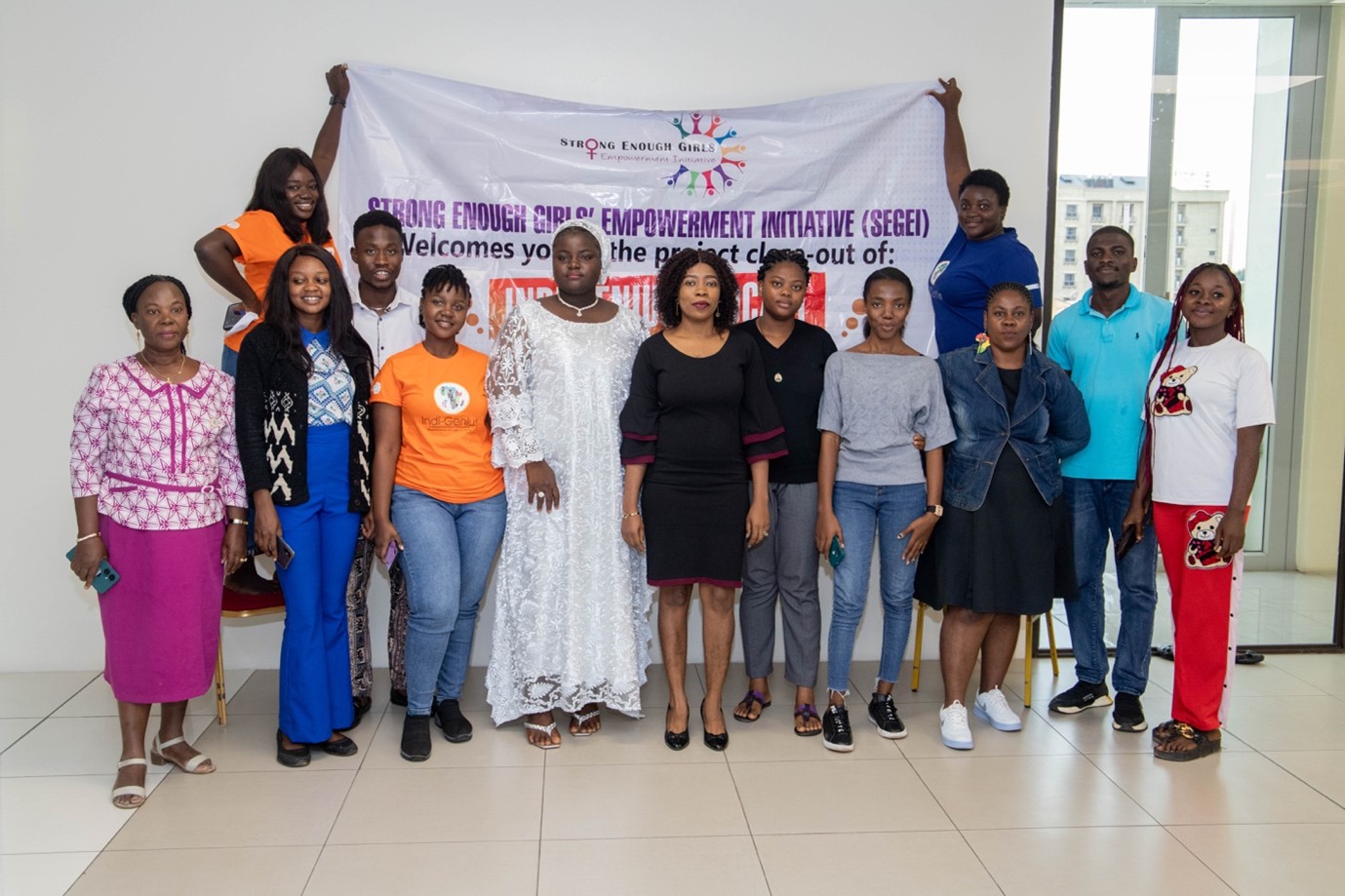By Kemisola Agbaoye and Ikemefuna Igwe (Lead Writers)
Adolescent Reproductive Health — Fraught with knowledge management gaps
As is the case in any other country, adolescents in Nigeria experience different sexual and reproductive health (SRH) challenges, including, access to quality and age-appropriate reproductive health information. In this age group, knowledge about SRH in areas such as menstruation; sexually transmitted infections (STIs) other than HIV; sex and pregnancy, is limited, particularly among younger adolescents. Communication is often lacking, especially between parents and their adolescents. “Engaging young people in this part of the world when speaking about sex and general reproductive health information is seen as something hard and unconventional,” said Oluwa Enitan Sophie, Indi-Genius Champion on her podcast episode — “Do persons with disabilities really need sex education too?”
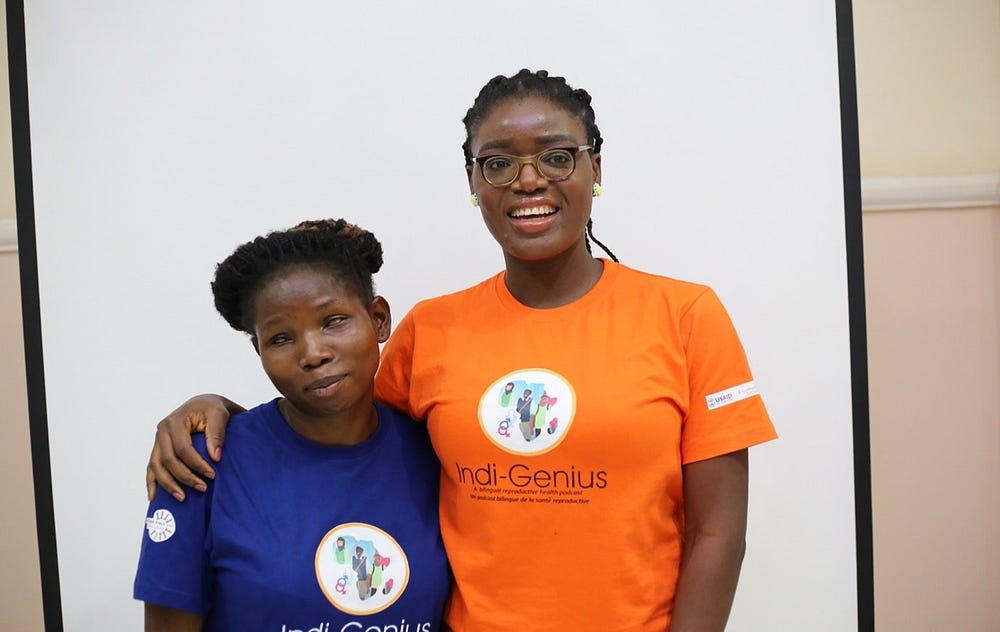
Sub-Saharan Africa accounts for over two-thirds of all global maternal deaths per year, with young girls bearing a higher burden. There is, therefore, a significant need for effective knowledge management approaches that specifically target young people and adolescents to bridge the knowledge gaps. This is what the Indi-Genius podcast aimed to achieve.
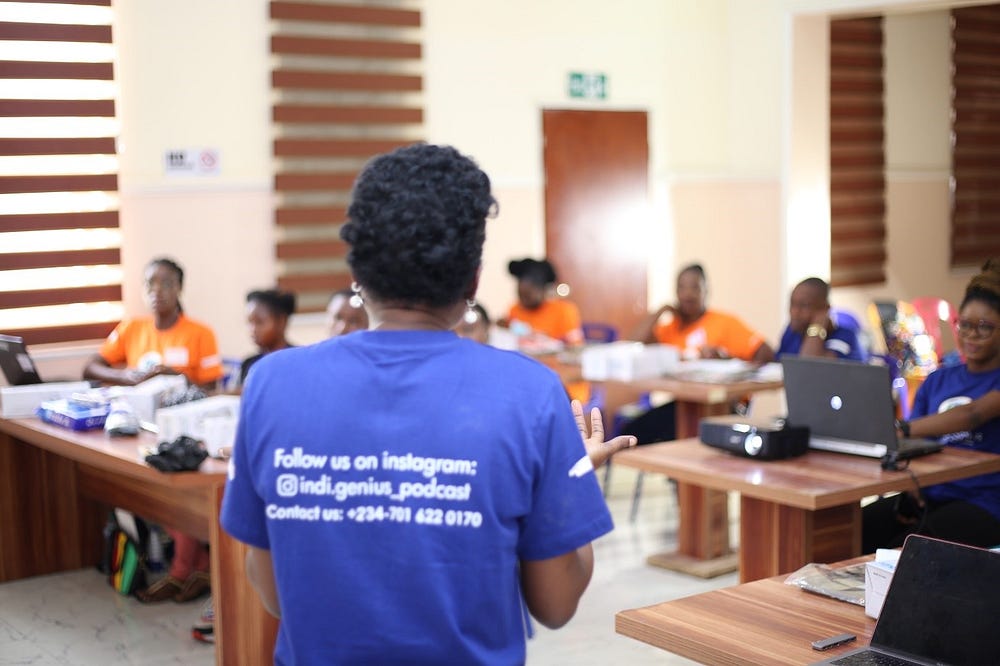
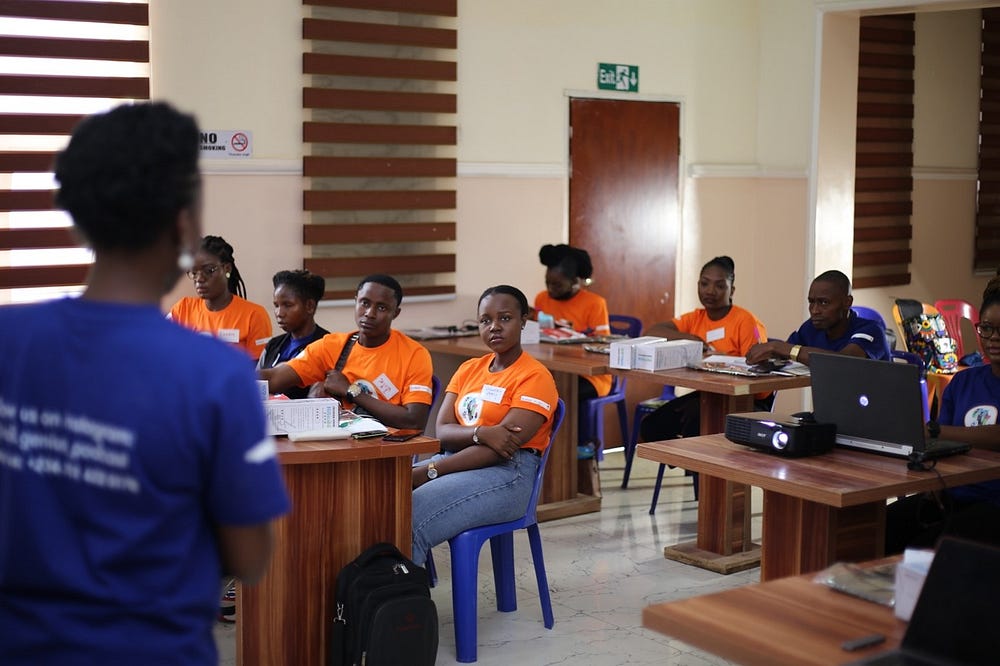
The Indi-Genius Podcast — young people as expert storytellers
“My podcast story was about a girl I take in my safe spaces — because I hold safe spaces sessions with girls in my sitting room, for it to be more conducive and secretive for them to tell me things that are happening to them and confide in me. So, I was done with my safe spaces, and she was like, ‘aunty I want to talk to you’.
She was depressed and it all started two years ago when her sister’s husband raped her. She was 13 years old and an orphan, staying with her elder sister. She got pregnant and didn’t know she was pregnant until she fell sick. The uncle took her for check-up… knowing fully well that he was the one responsible. The uncle had been married for 15 years with no child, but there was no way he could let her keep the baby because, what will he tell his wife?
He bought herbal concoctions and gave them to her… the foetus got damaged but did not come out, so he went to a nearby pharmacy and got Misoprostol and gave it to her, then he went to work. Afraid of staining the house, she ran into a nearby uncompleted building where the already damaged foetus came out. She fainted on her way back into the house and neighbours rushed her to the hospital. She could not even confide in her sister to tell her that it was her husband that was responsible, till date”. Fatima Salisu, a 26-year-old Indi-Genius champion.
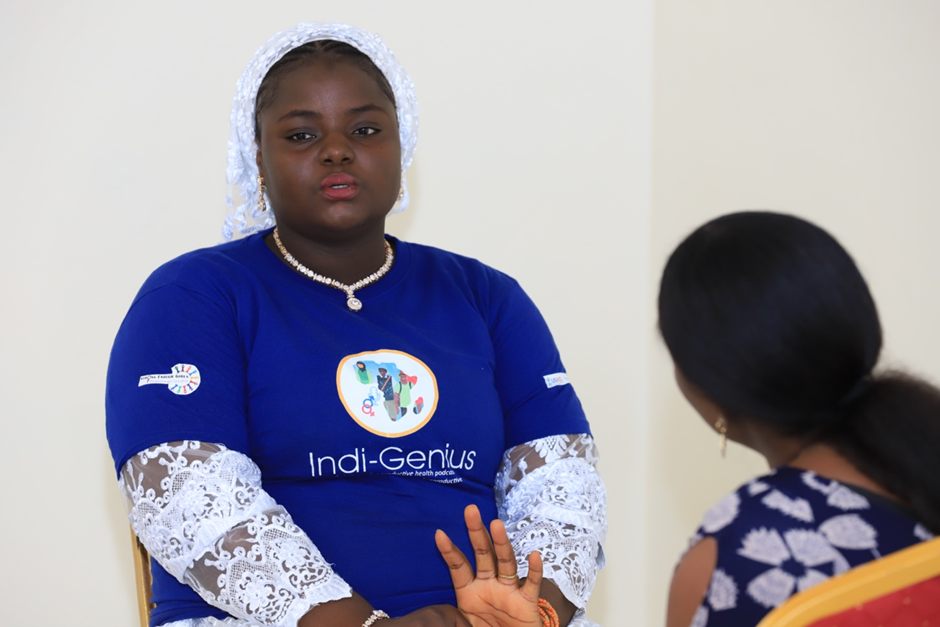
Onyinye Edeh, Founder and Executive Director of Strong Enough Girls Empowerment Initiative (SEGEI), conceptualised and implemented the Indi-Genius podcast — “Indi” referring to indigenes and “Genius” referring to young people doing exceptional work in promoting SRH services. She wanted to position young people as the experts of their own stories and capture those experiences in an engaging and captivating way. The Indi-Genius podcast shares young people’s experiences in accessing SRH care using local languages while facilitating knowledge exchange between anglophone (Nigeria) and francophone (Niger) Africa.
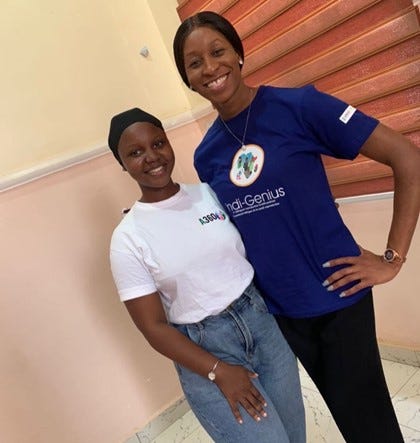
First, the Indi-Genius podcast aimed to build these young people’s capacities to tell their stories. “In order for the world to recognise young people as experts, they need to know how to deliver their stories in a way that will make them credible,” said Edeh who also aimed to connect them to international experts, facilitating exchanges between them and international organisations like the Ouagadougou partnership, AIDS healthcare foundation and Pact. The podcast was also designed to be afro-centric, with a soundtrack which has a groovy afrobeat feel to it, composed by a local Nigerian artiste following a call for applications — inspired by the once famous local TV show, Tales by moonlight.
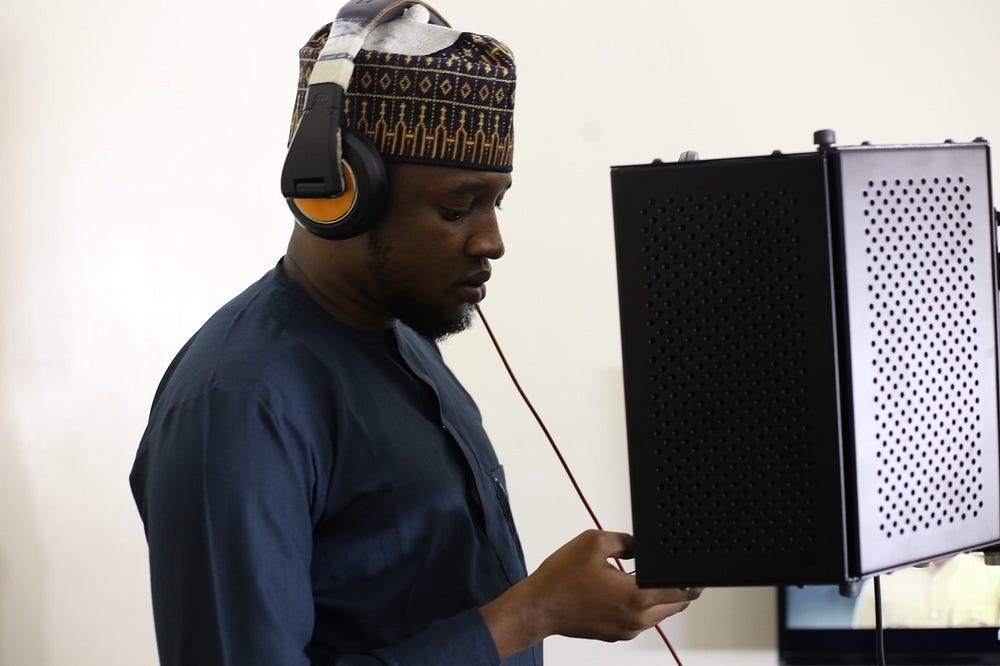
The Indi-Genius podcast was pitched to Knowledge Success’ “The Pitch”, where organisations are invited to submit proposals on how they would ensure effective knowledge management in SRH programming, with a particular focus on young people. SEGEI was one of three out of over 70 organisations that won.
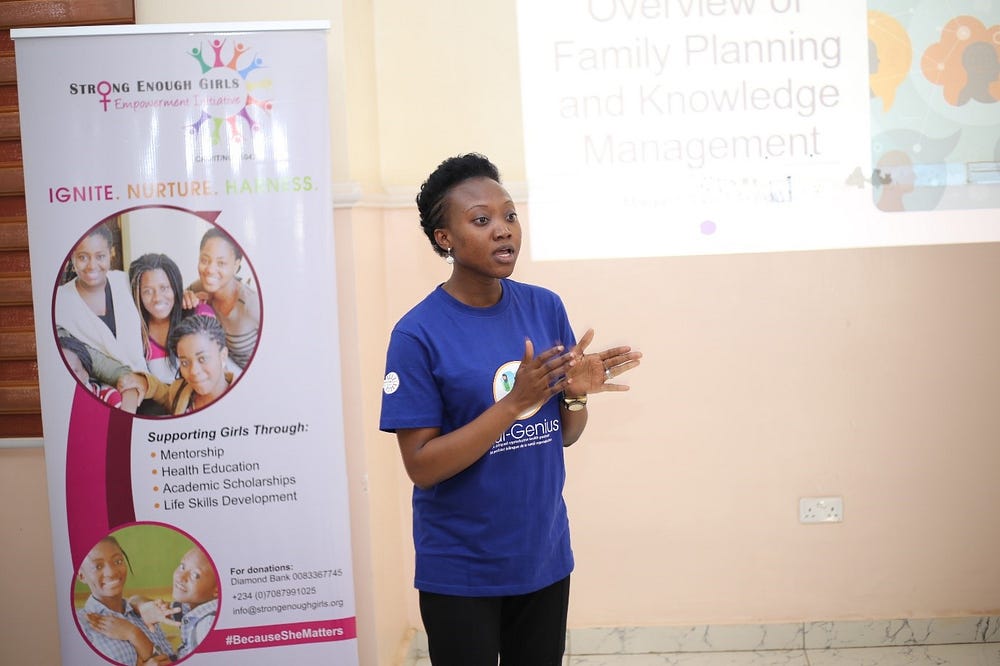
After this, SEGEI hosted a co-creation workshop with key stakeholders in the SRH/Family planning space in Nigeria, where plans for the podcast were validated and finalised. Edeh, however, would have loved to have had more government agencies in the room, to get their input and buy-in. She hopes to conduct advocacy to government agencies in the future.
To select the young people who would tell their stories on the podcast, a call for applications was put out asking applicants to submit a video of what they were doing to bridge sexual and reproductive health gaps in Nigeria and Niger. Twenty champions were selected out of over 70 applicants, 13 in Nigeria and 7 in Niger.

After they were selected, these young champions were invited to a 3-day intensive capacity-building workshop facilitated by SEGEI and SRH experts, where the Nigerian participants also learnt storytelling, audience engagement, and how to use social media from AprokoDoctor, a top health social media influencer in Nigeria. These workshops were held concurrently in Nigeria and Niger, in partnership with the network of Young Ambassadors for Reproductive Health and Family Planning (RJA SR/PF).
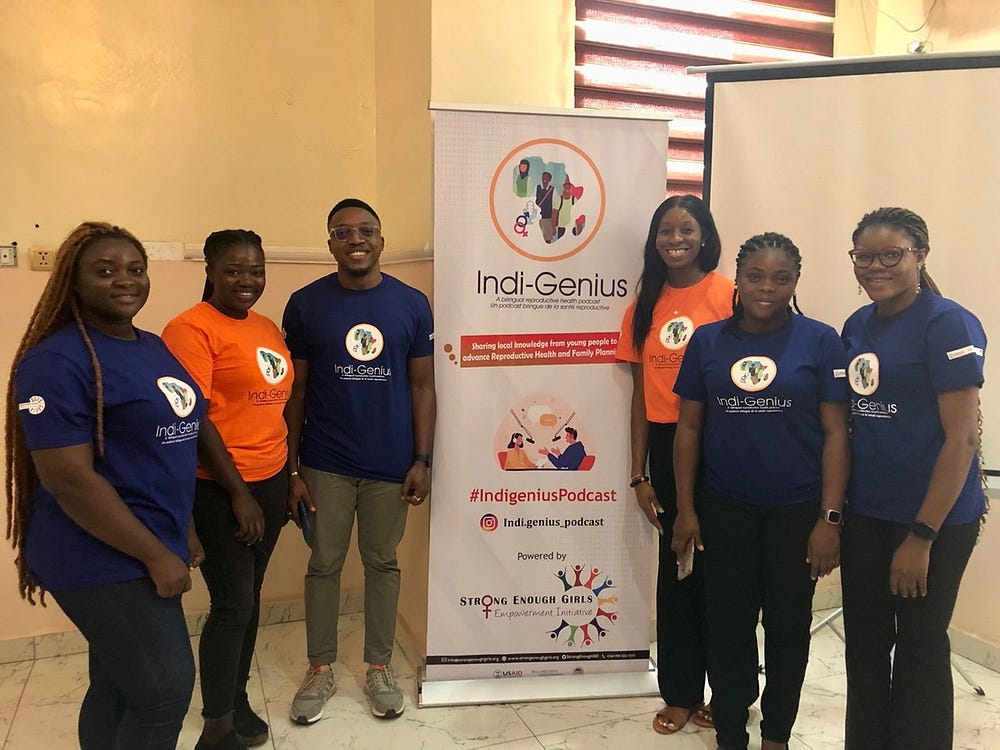
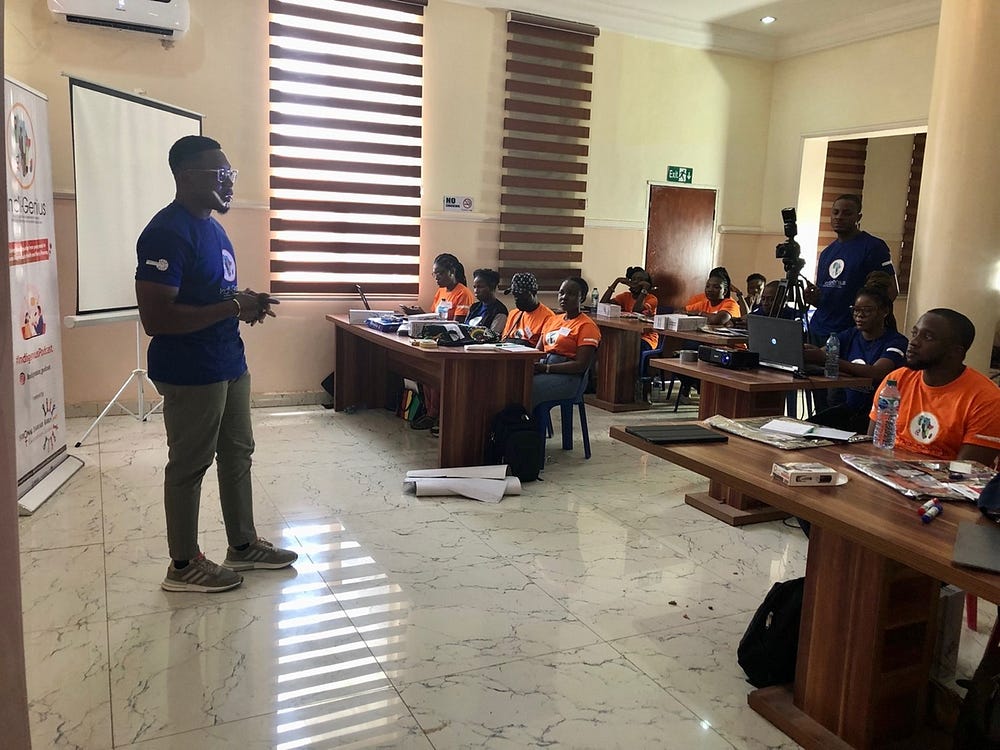
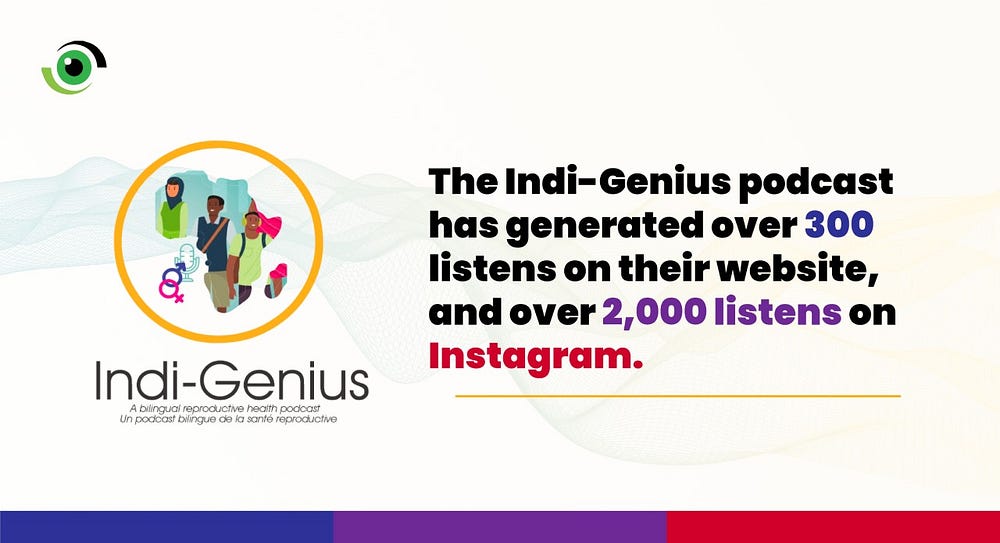
The podcasts were recorded during the workshop, 20 episodes in total, with each episode lasting less than 10 minutes. The episodes were then published on the Indi-Genius podcast website and amplified on social media. When it was found that the website was not generating sufficient traffic as listeners tend not to migrate to the website to listen once prompted on social media, the team started uploading the full episodes on their Instagram page. So far, the podcast has generated over 300 listens on the website, and over 2,000 listens on Instagram.
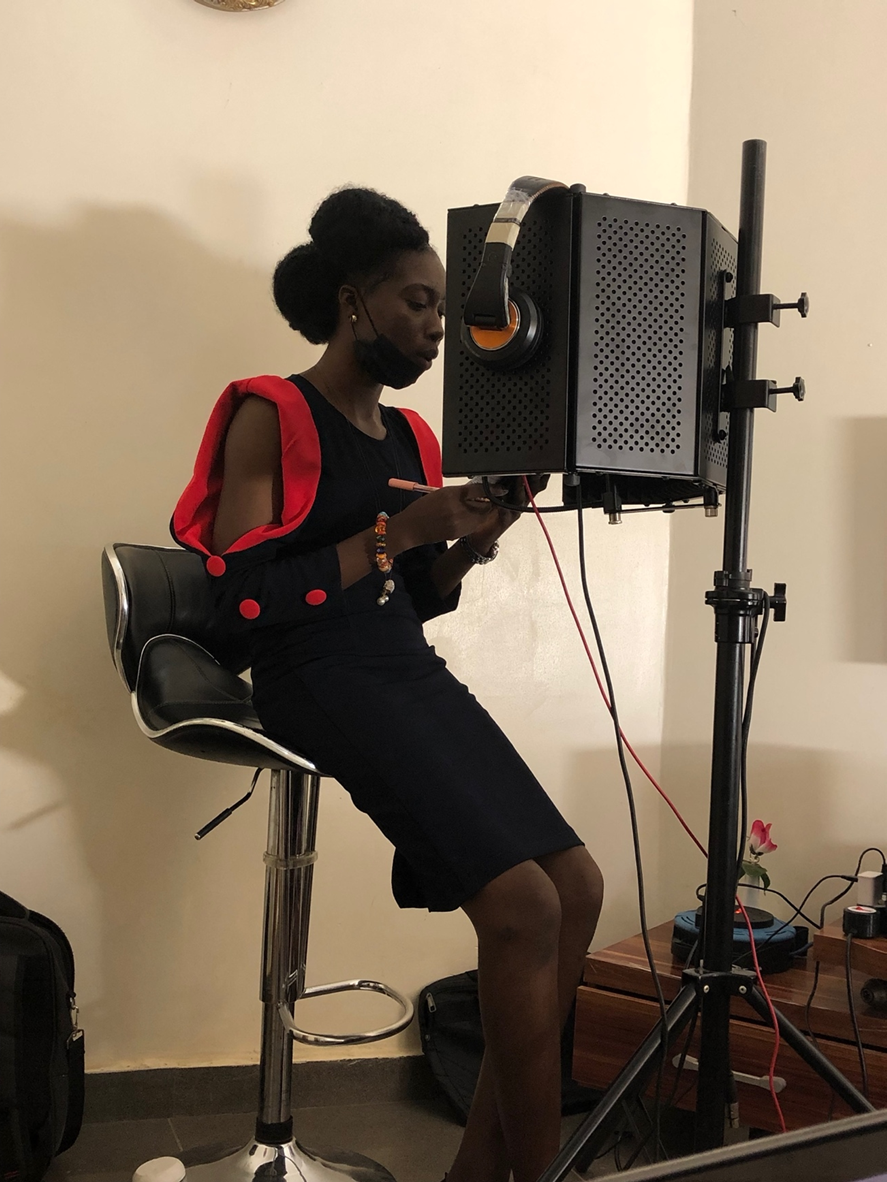
Opportunities for growth
While not all the young champions have proceeded to leverage social media to tell their stories, 18-year-old Ovia Annabelle Amarachi has opened an Instagram page to continue her advocacy efforts on Adolescent SRH, practising what she learnt during the workshop. Peace Umanah, a 22-year-old Master of Public Health student is most grateful for the networking opportunities that being a champion presented and has scored an internship opportunity from it. Salisu, however, would like to see the Indi-Genius podcast get to young people in hard-to-reach communities who might not have access to social media. The SEGEI team is making plans to broadcast the podcasts on local radio stations in Nigeria and Niger. Edeh also hopes to air the podcast in schools, making it more accessible to young people.
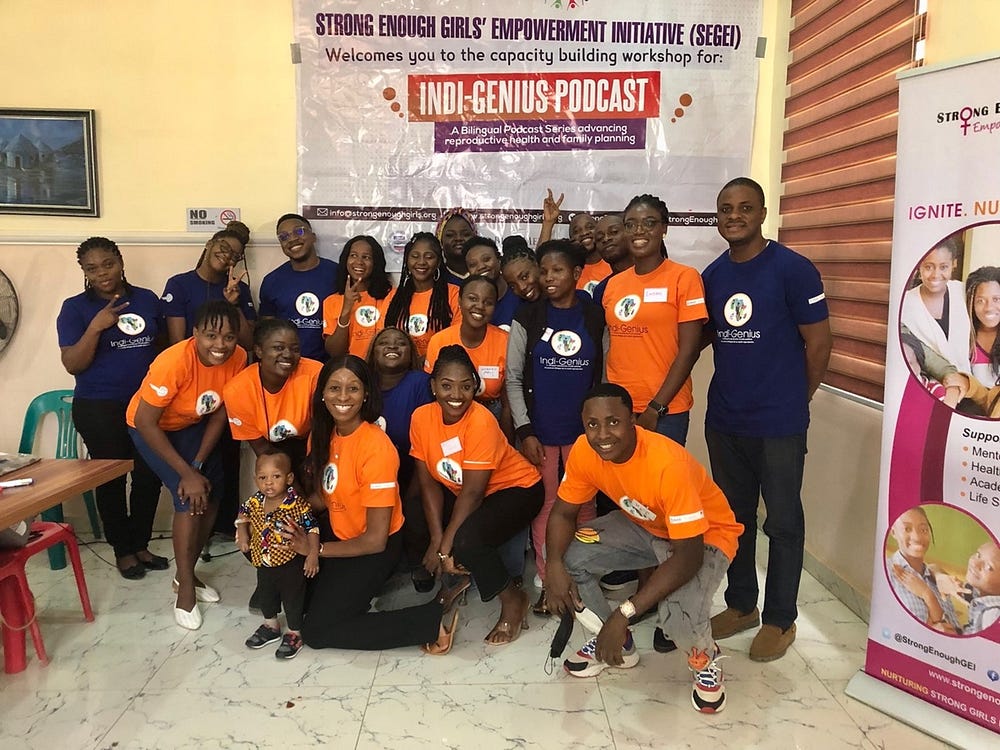
One major challenge encountered in implementing the project was in surmounting the language barriers between Nigeria and Niger. This was mitigated by hiring a language consultant to facilitate translations. The podcast is also donor-funded, which begs the question of sustainability. Edeh hopes to expand the scope of the podcast to include issues in education, entrepreneurship, etc. to broaden its reach, grow its audience and appeal to other funders. She also hopes to leverage other funding mechanisms, such as Kickstarter.

A rather important question, though, is, what happens to these champions after they are trained, and their episodes are recorded? According to Irene Igomu, Programme Officer at SEGEI, they hold regular Indi-Genius exchanges between SRH experts and the champions on social media, continue to engage them in key SRH events, and recommend them for job openings and internships. Edeh, however, is exploring ways to better document how these stories have impacted the lives of their audience and communities.


